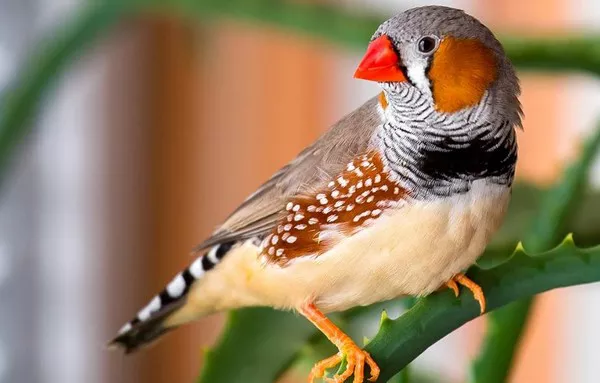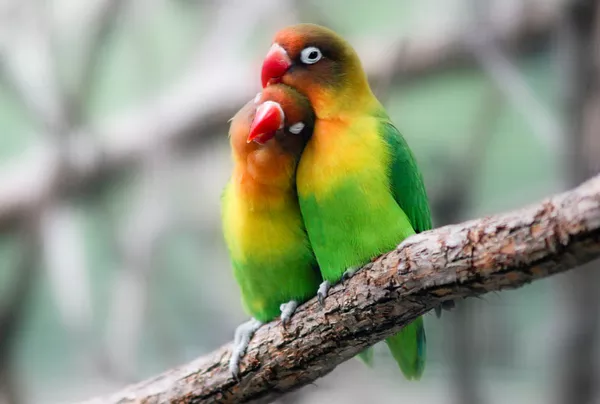Sun Conures, with their vibrant plumage and playful personalities, make excellent pets for bird lovers. Known for their intelligence and high energy, these stunning parrots are capable of learning to speak, although they are not typically as vocal as other parrot species like African Greys or Amazons. That said, getting your Sun Conure to talk requires patience, consistency, and the right environment. In this article, we will explore how to train your Sun Conure to talk, the best techniques, common challenges, and tips to keep your parrot happy and healthy during the process.
Understanding the Sun Conure’s Personality
Before we dive into training methods, it’s important to understand the Sun Conure’s natural instincts and behavior. Sun Conures, or Aratinga solstitialis, are small, colorful parrots native to northeastern South America. In the wild, they live in flocks, socializing and communicating with one another using a variety of vocalizations. These birds are highly social, intelligent, and curious, which makes them excellent candidates for learning to speak.
However, it’s essential to remember that not all Sun Conures will develop a speaking ability. While some may pick up words and phrases quickly, others might not show much interest in talking at all. This is due to individual personality differences, but with the right approach, most Sun Conures can learn a few words or phrases.
Why Do Sun Conures Talk?
Sun Conures are capable of mimicking human speech because of their high intelligence and complex vocal cords. Parrots, in general, have a specialized syrinx (vocal organ) that allows them to create a wide range of sounds, from whistles to actual words. In the wild, vocalization serves several purposes, including communication within flocks, alerting others to danger, or calling to potential mates.
In captivity, your Sun Conure may start mimicking sounds in response to the interaction they have with you. Birds in bonded relationships with their owners are more likely to engage in vocal behavior, which includes mimicking words and sounds. However, unlike some parrots, Sun Conures don’t tend to mimic speech as frequently or as clearly as larger species, so don’t be discouraged if it takes a bit longer to hear words from your bird.
Creating the Right Environment for Talking
Before you start training, it’s important to create an environment where your Sun Conure feels comfortable. A stressed or unhappy bird is less likely to engage in speaking behavior. So, the first step to getting your Sun Conure to talk is to make sure they’re in a stress-free, happy environment.
1. Build Trust
Your Sun Conure will only learn to mimic your speech if they feel comfortable and safe in their environment. Building trust takes time, so avoid forcing interactions or forcing the bird to do things they’re not ready for. Speak softly to them, offer treats, and allow them to approach you when they’re ready. Over time, this trust will lead to more communication and openness, which can eventually result in the bird mimicking your words.
2. Provide Proper Socialization
As a social bird, the Sun Conure thrives when they are interacted with regularly. They are known for their need for companionship, so spending time talking, playing, and bonding with your bird is critical. The more engaged your bird is with you, the more likely they are to try mimicking your speech.
3. Create a Quiet, Stimulating Environment
While Sun Conures enjoy attention, they can also get overwhelmed by too much noise or activity. Place your bird’s cage in a location where they can see the family, but avoid loud TV or radio sounds that might confuse your bird. You want to create a peaceful atmosphere where your Sun Conure can focus on you without distraction. Also, provide toys and enrichment activities to keep your bird mentally stimulated.
Training Your Sun Conure to Talk
Now that your bird feels safe and secure in its environment, it’s time to focus on training. Like any type of pet training, patience, consistency, and repetition are essential when teaching your Sun Conure to talk. Here are the steps you can take to encourage your bird to mimic words:
1. Start with Simple Words and Phrases
Choose simple words or phrases that are easy for your Sun Conure to understand and repeat. Words like “hello,” “goodbye,” “step up,” or even a simple whistling tune are great starting points. You’ll want to repeat these words often, using the same tone of voice and inflection. Birds are more likely to mimic words they hear consistently, so repetition is key.
2. Use Positive Reinforcement
Birds learn best when they are motivated by rewards. Positive reinforcement involves rewarding your Sun Conure whenever they make an attempt at mimicking words or sounds. Use their favorite treat, such as sunflower seeds or a piece of fruit, as a reward. If your bird chirps, whistles, or repeats a word—even if it’s not perfect—praise them with enthusiasm and give them a treat.
3. Speak Slowly and Clearly
When teaching your Sun Conure, speak slowly and clearly, enunciating each word. Parrots, including Sun Conures, learn by repetition, so it’s important to articulate words carefully. Keep your sentences short, and avoid using too many complex words at once. If you want your bird to learn the word “hello,” say it slowly and often, but don’t bombard them with different words at the same time.
4. Engage with Your Bird Regularly
Consistency is key in training. The more often you talk to your Sun Conure, the better chance they have of learning. Set aside time each day to talk directly to your bird. Birds are social creatures, so simply interacting with them in a playful and engaging manner helps stimulate their minds.
5. Imitate Their Sounds
One technique that may encourage your Sun Conure to mimic your speech is to imitate their sounds first. When they make a noise, try repeating it back to them. For example, if your bird makes a whistling sound, whistle back. This shows your bird that communication is a two-way process and encourages them to reciprocate. Gradually, you can introduce words or phrases after imitating their sounds, transitioning from simple noises to actual speech.
6. Use a Mirror
Some bird owners have found that placing a mirror near their Sun Conure’s cage can encourage them to talk. The bird may become intrigued by the reflection and start mimicking what they hear. Be cautious not to rely too heavily on the mirror, as it can cause confusion or stress for some birds. The mirror should be an addition to, not a substitute for, your interaction with the bird.
7. Be Patient
Don’t expect your Sun Conure to start speaking overnight. Every bird learns at their own pace. Some may pick up words quickly, while others take months or longer. Stay patient and consistent, and don’t get frustrated if your bird doesn’t speak immediately. Celebrate even small achievements, such as your bird repeating a few syllables or attempting to mimic a new sound.
Common Challenges in Teaching a Sun Conure to Talk
While the process of teaching your Sun Conure to talk can be rewarding, there are some common challenges that you may face along the way.
1. Limited Interest in Talking
Some Sun Conures may show little to no interest in mimicking human speech. This is not uncommon and is simply a matter of individual temperament. Some birds are more focused on playing, foraging, or interacting with other birds rather than learning to speak. If this is the case, try not to be discouraged. Continue bonding with your bird and providing them with enrichment activities. If talking doesn’t seem to be their thing, focus on other ways to enjoy your time together.
2. Aggressive or Nervous Behavior
If your Sun Conure becomes aggressive or nervous during training, it’s important to take a step back and reassess your approach. Birds can become stressed if they feel overwhelmed or threatened. Make sure that your training sessions are short, positive, and relaxed. Always respect your bird’s boundaries, and if they seem anxious, give them a break before continuing. Some birds may need more time to trust their owners, and that’s perfectly okay.
3. Vocalizations Without Words
While you might hear your Sun Conure mimicking sounds or vocalizing, they may not form full words at first. Instead, they might imitate whistles, beeps, or other noises they hear around them. This is a natural part of the learning process, and with patience and consistent training, they may eventually transition to more coherent speech.
Keeping Your Sun Conure Happy and Healthy
It’s important to remember that getting your Sun Conure to talk should never be the only goal of your training. The overall well-being of your bird should be your top priority. Here are some additional tips to keep your Sun Conure healthy, happy, and engaged:
1. Provide a Balanced Diet
A healthy diet is essential for your bird’s well-being. Offer a variety of foods such as fresh fruits, vegetables, seeds, and high-quality pellets to provide balanced nutrition. Avoid feeding them unhealthy human foods, such as chocolate or avocado, which can be toxic to birds.
2. Mental Stimulation
In addition to training, providing mental stimulation is key for your Sun Conure. Give them plenty of toys that they can chew, puzzle over, or manipulate. This helps prevent boredom and promotes a healthy, active mind.
3. Social Interaction
Sun Conures thrive on social interaction. Spend time each day talking, playing, and bonding with your bird. If possible, consider getting a second bird to provide companionship. However, keep in mind that two birds may bond with each other and require less interaction from you.
4. Regular Exercise
Encourage your Sun Conure to fly or climb outside their cage to maintain their physical health. Birds need regular exercise to stay in shape and prevent obesity or other health issues.
Conclusion
Getting your Sun Conure to talk is an exciting challenge that requires patience, consistency, and a solid bond with your bird. While not all Sun Conures will develop speaking abilities, most can learn a few words with the right approach. Remember to create a safe, engaging environment, focus on positive reinforcement, and be patient throughout the process. If your bird isn’t speaking immediately, don’t be discouraged—simply continue building your relationship with them, and enjoy the process of watching your Sun Conure grow and develop into a happy, healthy companion.
With time and care, you might just be rewarded with the sound of your Sun Conure speaking a few words or phrases, making your bond even stronger!
Related Topics:

























